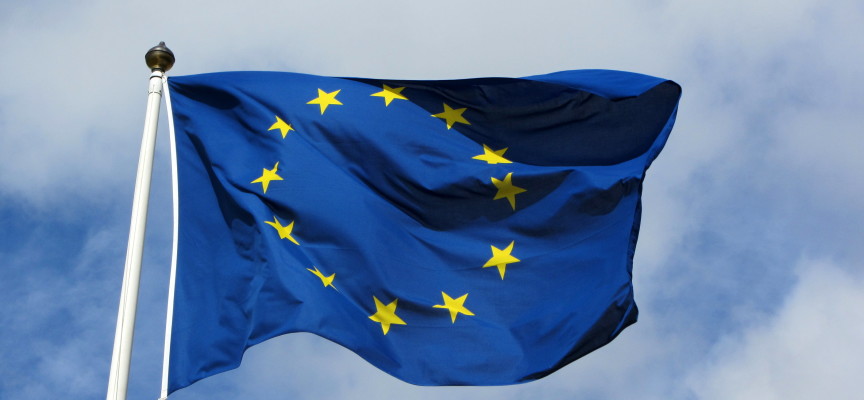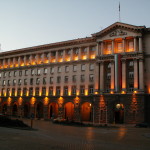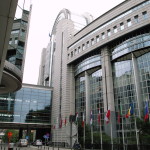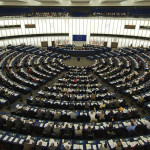Among the many questions raised in the electoral debate about the future of the European Union those related to internal and external security must not be forgotten. They are indissolubly linked and need a common strategy in order to be effective and to meet the right of both the European citizens and those of the whole world.
We should not forget that the principles which are at the basis of the EU strategy for internal and external security refer to the values of human dignity, freedom, democracy, equality, solidarity, the rule of law, and the defense of human rights.
The document “A secure Europe in a better world”, published by the Council of Europe in 2003, outlines the elements that are necessary to build a strong and solid European security policy. The text also underlines the responsibility of the EU in making efforts to strengthen the global world security, which is tightly linked to the European one. In over ten years, steps forward have been made but political complications as well have been present in the search for common answers.
As far as the so-called internal security strategy of the Union is concerned, the threats emphasized are cross-border organized crime, terrorism, cyber-crime, political violence, incidents of different kinds (in transports, in the industrial field, in the health sphere and so on), natural disasters.
Among the actions specified to establish common criteria for internal security are the strengthening of the judiciary co-operation in the fight against drug trade, the law enforcement and the reinforcement of Europol, Eurojust and other EU structures.
In regard to external security it mustn’t be forgotten that assistance programs to the development of other countries have formed a solid foundation from where the EU has drawn resources to strengthen and increase the multilateral co-operation in the fight against drug trade and other threats to security.
The necessity to tackle challenges which go beyond the national, bilateral or regional capability of States and which require multilateral efforts has produced two relevant results: on one hand have grown the capacities and institutional actions in a context of international co-operation in defense of the European citizens; on the other hand the fight against crime and terrorism increases the culture of security, which asserts the capacity of the EU to safeguard the global society from multidimensional risks all over the world.
To reach this objective the EU foreign policy has chosen the way of prevention of conflicts rather than of their resolution by means of the engagement in politics and dialogue of the others, even if the military measures are considered means to be used as last resort.
We need to carry on with strong determination in this direction and for this reason let’s wish for a message of support and encouragement for European unity from the forthcoming European elections; the lack of this unity would weaken the strategy of the fight against violence, crime and illegality which, from their point of view, have organized and still are world-wide increasingly organizing.
Tra le molte questioni che vengono poste nel dibattito elettorale attorno al futuro dell’Unione europea non bisogna trascurare quelle relative alla sicurezza interna e alla sicurezza esterna che, strettamente tra loro collegate, hanno bisogno di una strategia comune per essere efficaci, per rispondere a un diritto fondamentale dei cittadini europei e di quelli del resto del mondo.
Bisogna ricordare infatti che i principi alla base della strategia Ue della sicurezza interna ed esterna richiamano i valori della dignità umana, della libertà, della democrazia, dell’uguaglianza, della solidarietà, del “rule of law”, della tutela dei diritti umani.
Nel documento “A secure Europe in a better world”, pubblicato dal Consiglio europeo nel 2003, sono delineati gli elementi principali necessari per costruire una solida strategia europea di sicurezza. Nel testo si sottolinea anche la responsabilità dell’Ue nel rafforzare la sicurezza mondiale, che è strettamente legata a quella europea. In oltre dieci anni sono stati compiuti passi avanti ma non sono mancate difficoltà, soprattutto politiche, nella ricerca di risposte comuni.
Per quanto riguarda la cosiddetta strategia interna di sicurezza dell’Unione le minacce messe in rilievo sono: criminalità organizzata transfrontaliera, terrorismo, cyber-crime, violenza politica, incidenti di varia natura (nei trasporti, nel settore industriale, nell’ambito sanitario ecc.), disastri naturali.
Tra le misure definite per stabilire criteri comuni per la sicurezza interna ci sono il rafforzamento della cooperazione giudiziaria nell’area della lotta al narcotraffico, della legislazione e di strutture come Europol, Eurojust e altre analoghe.
Sul piano della sicurezza esterna non bisogna dimenticare che le politiche di aiuto allo sviluppo nei confronti di Paesi terzi hanno costituito una solida base da cui l’Ue ha attinto risorse per rafforzare e ampliare la cooperazione multilaterale, dalla lotta alla droga ad altre minacce alla sicurezza.
La necessità di affrontare sfide che vanno oltre le capacità nazionali, bilaterali o regionali degli Stati e che richiedono sforzi multilaterali ha provocato due risultati: da un lato sono cresciute le capacità e le azioni istituzionali in un quadro di cooperazione internazionale a tutela dei cittadini europei, dall’altro lato la lotta alla criminalità e al terrorismo accresce la cultura della sicurezza volta ad affermare anche nel resto del mondo la capacità dell’Ue di preservare la società globale dai rischi multidimensionali.
Per raggiungere questi obiettivi la politica estera Ue ha scelto la strada della prevenzione dei conflitti attraverso il coinvolgimento politico e dialogico, anche se le misure militari sono considerate come strumenti da utilizzare in ultima istanza.
Occorre proseguire su questa strada con maggior determinazione e unità; per questo è da augurarsi che dalle urne delle imminenti elezioni europee venga un segnale di sostegno e stimolo per l’unità europea, senza la quale s’indebolirebbe la strategia di una lotta contro la violenza, il crimine e l’illegalità che dal canto loro sempre più si sono organizzati e si organizzano a livello internazionale.
Alex Snider
Latest posts by Alex Snider (see all)
- More unity, more security - 29 aprile 2014











